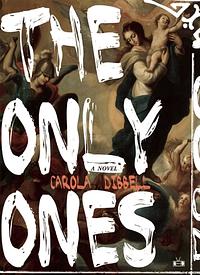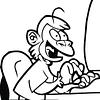Take a photo of a barcode or cover
This is a very strange book. I enjoyed it...to a point. It's part post-apocalyptic tale, part difficulties of parenthood, and part...well, I dunno what. It's well written, I'll give it that.
I agree with someone who says this starts out a 5 star book but then something gets lost, largely in the plausibility of the dystopia.
The combination of the off-putting dialect, the unintelligent/incurious narrator's perspective, the numerous terms and the constant world-building make the beginning of this book extremely unpleasant. If I wasn't reading this for the NEWTs reading challenge, I would have DNF'd it 60 pages in.
It gets better. The author uses the narrator's lack of knowledge and experience to cleverly explore motherhood and the way society judges mothers in a perceptive and unique way. However, as someone who was interested in this book for the post-apocalyptic aspects, I found this book quite boring. A lot of interesting things happen (like life in quarantine) but these things are just summed up in favor of repeated navel-gazing about the nature of clones.
If you're more interested in the issues of motherhood and fertility and less interested in the post-apocalyptic world you might like this. Although, if you're not into the idea of a post-apocalyptic world you probably won't like this either. I think this is playing to a pretty niche market of people who are interested in these topics and also post-Apocalyptica (and who have enough patience to overcome the off-putting linguistic style). Unfortunately, this book just wasn't for me.
It gets better. The author uses the narrator's lack of knowledge and experience to cleverly explore motherhood and the way society judges mothers in a perceptive and unique way. However, as someone who was interested in this book for the post-apocalyptic aspects, I found this book quite boring. A lot of interesting things happen (like life in quarantine) but these things are just summed up in favor of repeated navel-gazing about the nature of clones.
If you're more interested in the issues of motherhood and fertility and less interested in the post-apocalyptic world you might like this. Although, if you're not into the idea of a post-apocalyptic world you probably won't like this either. I think this is playing to a pretty niche market of people who are interested in these topics and also post-Apocalyptica (and who have enough patience to overcome the off-putting linguistic style). Unfortunately, this book just wasn't for me.
I'm on a post apocalyptic binge lately. But this book is so much more than that. It's about motherhood, belonging, isolation....I can't even list all of the things it's about. At the same time, it's just a simple story of a mother and a child. I didn't want it to end. It's one of those books that reads quickly but will have to be re-read to appreciate all the nuances.
I didn't think I'd like this book at first. I picked it off one of those same lists of "good books you're probably not aware of." But the beginning was a bit off-putting and odd. I'm glad I stayed with it, though.
It's a story about a dystopian future where deadly epidemics are largely out of control, and millions of people have died. The main character is one of the rare hardy people. The various hardy strains have natural immunity from most, if not all, the diseases. Since the plagues have also killed many children and had bad effects on reproductive rates, there's money to be made on children with hardy genes. But Inez (the protagonist) ends up with more than she bargained for.
The book becomes a look at motherhood, and identity, and the challenges of rearing ANY child. I got a little weary of Ani's teen-age angst, but that's probably my biggest quibble.
Took me a little to get used to the narrator I listened to, but she was really quite good.
It's a story about a dystopian future where deadly epidemics are largely out of control, and millions of people have died. The main character is one of the rare hardy people. The various hardy strains have natural immunity from most, if not all, the diseases. Since the plagues have also killed many children and had bad effects on reproductive rates, there's money to be made on children with hardy genes. But Inez (the protagonist) ends up with more than she bargained for.
The book becomes a look at motherhood, and identity, and the challenges of rearing ANY child. I got a little weary of Ani's teen-age angst, but that's probably my biggest quibble.
Took me a little to get used to the narrator I listened to, but she was really quite good.
I only made it to page 28. I couldn't get past the "voice" of the main character/narrator.
I loved this book. I mean, it is basically hopeless and made me depressed but it has everything. A+ recommend!
I love dystopian novels, and I really tried to love this book. It was disappointing. Not sure what all of the buzz was about.
dark
medium-paced
Plot or Character Driven:
A mix
Strong character development:
Yes
Loveable characters:
Complicated
Diverse cast of characters:
Yes
Flaws of characters a main focus:
Yes
2.5. Two because I finished it (based on Tara's rule) and .5 because I appreciated some of it. I think the author had a good idea but failed to carry it through to print.




